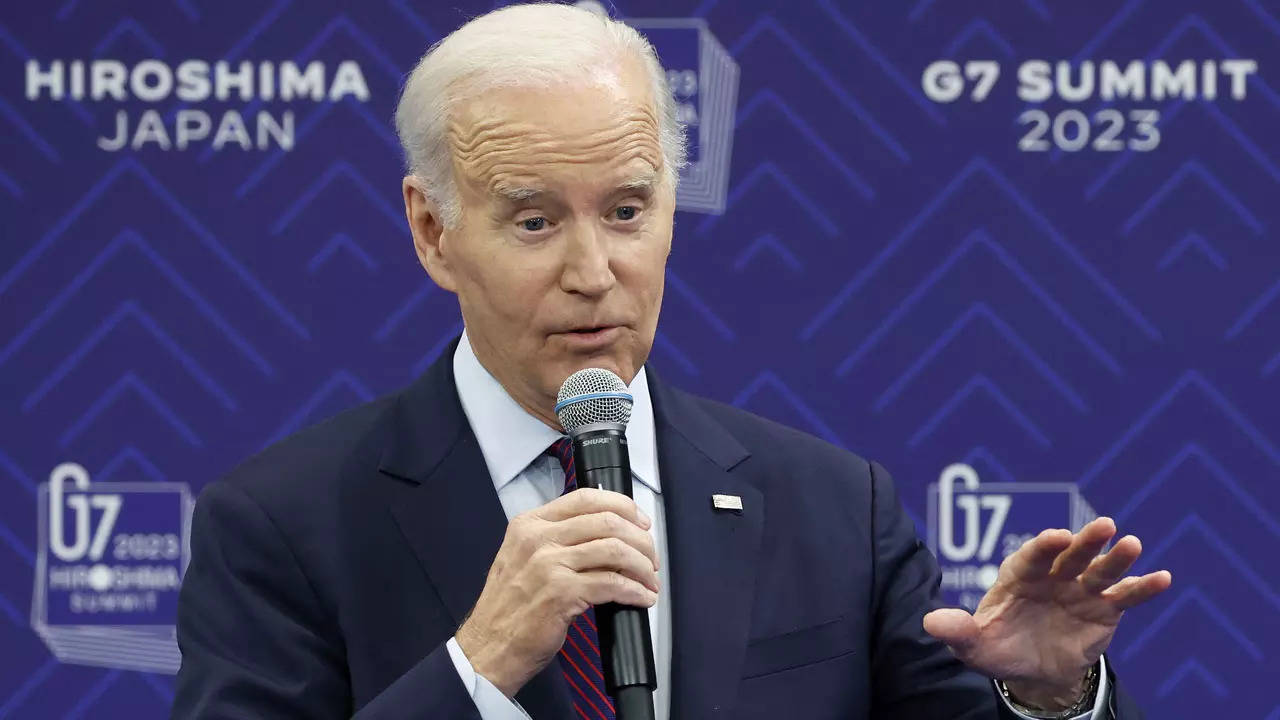A Look At Key Takeaways From France's EU Vote
The far-right National Rally swept the boards in France's elections to the European Parliament Sunday, continuing its seemingly inexorable rise under longtime leader Marine Le Pen and 28-year-old current party chief Jordan Bardella.

The far-right National Rally swept the boards in France's elections to the European Parliament Sunday, continuing its seemingly inexorable rise under longtime leader Marine Le Pen and 28-year-old current party chief Jordan Bardella.
The party topped the poll in 32,613 out of 35,015 voting districts (towns, villages and territories), representing 93 percent of the total.
The results mark a huge surge in five years for the party, which won 71 percent of voting districts in the last European elections in 2019.
Nationwide, it took 31.36 percent of the vote, compared with 23.34 percent five years ago.
Far-right cleans up
The party scored particularly high in struggling former coal-mining towns in its northern stronghold of Pas-de-Calais.
Bardella's list won 63.4 percent of the vote in the town of Bruay-la-Buissière and 61.4 percent in Henin-Beaumont, where Marine Le Pen was twice elected to the French parliament.
It also gained strongly in the rural Lot-et-Garonne department, the epicentre of a revolt earlier this year by farmers protesting low prices and environmental regulations, where it scooped 318 out of 319 voting districts.
Other departments to massively vote RN (over 99 percent of districts) were Indre, Loir-et-Cher, Loire and Loiret in central France, Eure in the northwest, Aube, Aisne and Oise in the north, the mountainous Vosges department in the northeast and Var in the southeast.
The party came first in all districts in the northeastern city of Belfort, which has been struggling with high unemployment and poverty, as well as in Mayotte, a French island in the Comoros archipelago off southern Africa that struggles with illegal migration from neighbouring non-French islands as well as mainland Africa.
Toulon, which was the first major city to elect a far-right mayor in 1995, was the city where the RN scored biggest, with 36.8 percent of the vote.
Brittany lurches to the right
The western region of Brittany, long seen as a progressive bulwark against the far right, also turned to the RN, which campaigned heavily on immigration and the cost-of-living crisis.
While the RN's share of the vote in the region was lower than its national average (25.58 percent), it came out top in 86.2 percent of districts, up from just 35.2 percent in 2019.
Body blow for Macron
The RN's gains were Macron's losses, with over 6,400 districts in mainland France that had put the president's party first five years ago going over to the National Rally.
Only around 30 districts traded hands in the opposite direction.
The presidential alliance suffered the heaviest losses of any party, taking just 14.6 percent of the vote nationwide (down from 22.4 percent in 2019) to win just 864 communes, a tenth of its 2019 take of 8,523.
The Greens party also suffered a drubbing, with its tally falling from 1,336 districts in 2019 to just 78, as did the mainstream right-wing Republicans party, which scooped 174 administrative districts, down from 812 five years ago.
A rare bright spot for Macron's list was the prosperous Hauts-de-Seine department west of Paris, where his alliance won 20 out of 36 districts.
The left keeps Paris
The election confirmed the widening schism between Paris and the rest of France, with RN failing to make a breakthrough in the capital, which swung behind Socialist-backed left-wing intellectual Raphael Glucksmann (22.9 percent of the vote), ahead of Macron's alliance on 17.7 percent.
The RN won just 8.54 percent of the vote, only a slight improvement on its score of 7.23 percent in 2019.
The big winner in the poor, multi-ethnic Saint-Seine-Denis department north of Paris was the hard-left France Unbowed of veteran firebrand Jean-Luc Melenchon, which won 33 out of 40 voting districts with a campaign that repeatedly accused Israel of carrying out "genocide" in Gaza.
The RN took the remaining seven districts.
(Except for the headline, this story has not been edited by NDTV staff and is published from a syndicated feed.)



































![Safari Thorium Neo 8-Wheel Luggage Set Trolley Bags (Set of 3) at just Rs. 5,599 [MRP 29,100]](https://savefree.in/uploads/images/202409/image_870x580_66f63845060f0.webp?#)












![Handmade Brown Mango Wood Chopping Board At just Rs. 89 [MRP 599]](http://savefree.in/uploads/images/202303/image_870x580_641bf7e9c2206.jpg?#)



